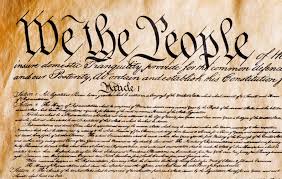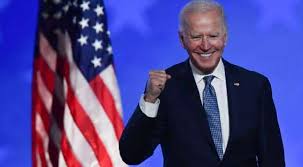Perhaps this is premature, but I detect a new, or should I say ‘old’ morality creeping back into communications, whether it be in politics or business. It comes to mind as the concept of ‘fake news’ is increasingly being derided and social media, under pressure to bear responsibility for what is published on its platforms, is slowly, too slowly many would say, starting to clean up its act.

But it is more than that. The architects of dishonest communications are starting to disappear or mend their ways because it hasn’t worked. In politics, Trump is shuffling off the presidential stage and, however noisy he may be from the side-lines, he is no longer President and that is enough. I can’t believe I am saying this, but he was a brilliant propagandist. He knew his audience and how to incite them; he also knew how to disrupt mainstream news agendas mainly through Twitter to suit his own ends. The leading news channels regularly fell into his trap of endlessly covering his outrageous, often untrue statements, allowing him to hold centre stage on his own terms.
However, there is a limited shelf-life to this approach. People see through the tricks and tire of the divisive, explosive commentary. Fact checking gets tougher, opinion more polarised and, in the process, you lose the middle ground. More importantly, if you can’t back up your claims with competence and delivery, you are simply left with a vacuum and people see you for who you are. This is Trump. As coronavirus mismanagement grows and he tears up democratic norms in his response to his rejection by voters, an immoral communications strategy becomes self-defeating. What Trump now says, or what is said on his behalf, simply comes across as dishonest, uncaring, and faintly ridiculous, sadly with tragic consequences.
Johnson is no Trump but on communications strategy, he overlaps. Charismatically prone to untruths and exaggerations, certainly he is being held to account by this pandemic. The seriousness of his role and the level of scrutiny he is under has demanded a change of approach in communications because aggression and glib soundbites haven’t worked. Less guff and an ‘us versus them’ attitude to media relations, combined with more transparency is now the name of the game. A new cast of Downing Street advisers will ensure this change of substance and tone.
And so on to business. Much communications resource is currently focused on Environmental, Social and Governance (ESG) issues. Companies are increasingly under pressure from investors to demonstrate their credentials on a range of issues from alleviating climate change to improving the diversity and well-being of their work force. Not unnaturally they engage the services of external public relations firms to help them communicate initiatives and policies.
Two major public relations firms, one now out of business, have been accused of a lack of integrity; being reckless in their choice of clients and/or the actions undertaken on their behalf on ESG-related issues. Allegations ranging from hiding corruption in South Africa on the one hand to aggressive ‘greenwashing’ on the other have been made. But they have been found out, proving the advent of ESG applies to the moral standards of those who advise on communications strategy just as much as to underlying clients.
Strong, transparent communications, including the admission of mistakes, now ultimately brings rewards in an era of greater scrutiny. An opposite approach does not. There are no short-cuts on truth to be had without a price being paid. You do what you say and assume you will be held to account for it. Whether it is business or politics, that is good advice worth taking.

